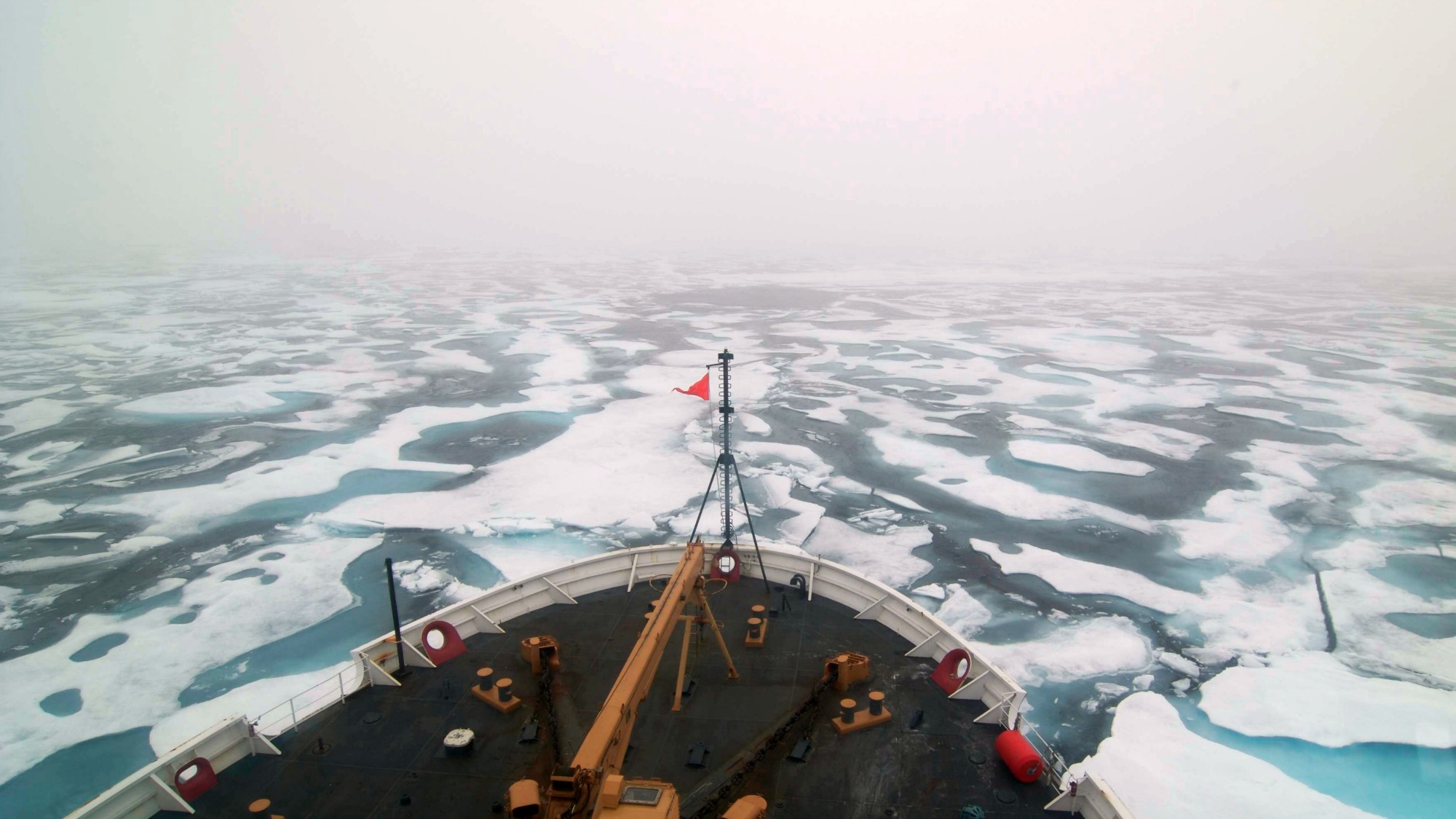The Arctic is melting, so the U.S. is rolling up there with its guns and ammo.
U.S. Defense Secretary Chuck Hagel laid out the Pentagon’s first-ever Arctic strategy — a military strategy designed to keep the fast-melting region peaceful and clean as it is plundered by drillers and traversed by shippers. From his speech on Friday [PDF]:
Climate change is shifting the landscape in the Arctic more rapidly than anywhere else in the world. While the Arctic temperature rise is relatively small in absolute terms, its effects are significant – transforming what was a frozen desert into an evolving navigable ocean, giving rise to an unprecedented level of human activity. Traffic in the Northern Sea Route is reportedly expected to increase tenfold this year compared to last year. …
With Arctic sea routes starting to see more activities like tourism and commercial shipping, the risk of accidents increases. Migrating fish stocks will draw fishermen to new areas, challenging existing management plans. And while there will be more potential for tapping what may be as much as a quarter of the planet’s undiscovered oil and gas, a flood of interest in energy exploration has the potential to heighten tensions over other issues – even though most projected oil and gas reserves in the region are located within undisputed exclusive economic zones.
Despite potential challenges, these developments create the opportunity for nations to work together through coalitions of common interest, as both Arctic and non-Arctic nations begin to lay out their strategies and positions on the future of the region.
Here is our summary of Hagel’s eight-point strategy:
1. The U.S. will not allow anybody to even think about messing with us. “We will remain prepared to detect, deter, prevent and defeat threats,” Hagel said.
2. The U.S., Alaska, and private industry will work together “to improve our understanding and awareness of the Arctic environment” — which provides the “first new frontier of nautical exploration since the days of Ericsson, Columbus, and Magellan.”
3. No pirates. “We will help preserve freedom of the seas throughout the region, to ensure that the Arctic Ocean will be as peacefully navigated as other oceans of the world.”
4. Boost infrastructure and military presence in the Arctic “at a pace consistent with changing conditions” and “balance potential Arctic investments with other national security priorities.”
5. Similar to No. 1, but with Russia and other partners. “We will enhance our cold-weather operational experience, and strengthen our military-to-military ties with other Arctic nations.”
6. Be better prepared to respond to disasters, both natural and those related to shipping, drilling and other human activities.
7. Protect the Arctic’s “environmental integrity.”
8. Support the development of the Arctic Council and other international organizations. “These engagements will help strengthen multilateral security cooperation throughout the region, which will ultimately help reduce the risk of conflict,” Hagel said.
“Throughout human history, mankind has raced to discover the next frontier,” Hagel said. “And time after time, discovery was swiftly followed by conflict. We cannot erase this history. But we can assure that history does not repeat itself in the Arctic.”


